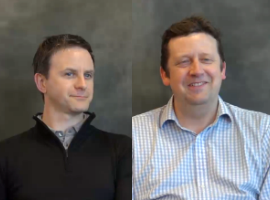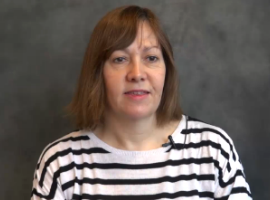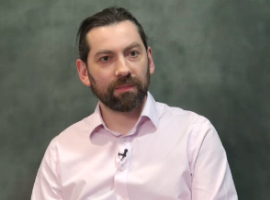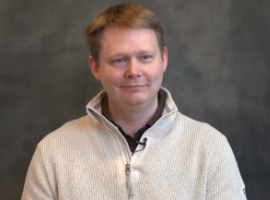InfoQ Homepage QCon Software Development Conference Content on InfoQ
-
Tony Grout and Chris Matts on Skype's Agile Transformation
Tony and Chris describe how Skype transformed their operations to adopt agile methods across 200+ teams spread over eight locations around the world. They discuss what worked, some of the challenges and share ideas that other organisations may be able to use in their own transitions.

-
Rachel Davies on Whatever Happened to Being Extreme
An interview with Rachel Davies about extreme programming and agile techniques, good things that have happened since the agile manifesto was published, developments that give agile a bad name and things that can be done to prevent that people think badly about agile and start to resist it and how scrum teams can adopt more technical practices from XP.

-
Enyo Kumahor on Bringing Frugal Innovation Out of Africa
Enyo Kumahor talks about how Cobat Partners helps companies in Africa to leverage technology, applying the ideas of frugal innovation and pragmatism to delivering products which make a difference to the daily lives of people in Africa, despite the constraints they must work within. She discusses how these ideas apply beyond Africa, and how IT professionals around the world can help.

-
Portia Tung on Hope as the Driver for Change and Improvement
Portia Tung works as an agile coach and shares some experience on making teams out of individuals and motivating those teams to follow a vision or reach a goal. One technique to reach a goal is to use hope as the combination of will-power and way-power. How much power do I have to follow my goals and how much creativity do I have to overcome any obstacles on my way?

-
Helen Walton and Pete Burden on Creating the Culture You Want
At QCon London Helen Walton and Pete Burden discussed what it takes to design a collaborative, agile supporting culture in an organisation, if it is possible for large organisations to actually change and what is needed to enable that change. The spoke about the Spark the Change conference and how it is a showcase of organisations that are actually working in new ways.

-
Paul Fremantle on Security in Internet of Things
The Internet of Things is becoming a part of our lives right now - we are measuring health, we are connecting to our cars, we can open our front door while being half-way around the globe. And while we can benefit from all the sensors and actors around us, there is also a big risk of losing control and data. Paul Fremantle shares some knowledge on potential threads and what we can do about them.

-
Jenni Jepsen on the Neuroscience Behind Why Agile Works
Jenni explores the neuroscience which shows why agile works, how it links to the factors that motivate people (using the SCARF model) and how leadership at every level and shows how empowering people is necessary for organisational success.

-
Ben Linders on Retrospectives and Helping Teams Improve
Ben talks about the value of retrospectives as a technique for teams to improve their processes and achieve better outcomes through continuous improvement and ongoing learning. He says that management support is needed to enable change to be effective. He emphasizes the importance of technical as well as social practices for delivery of valuable software.

-
Matthew Skelton on DevOps and Continuous Delivery Challenges
Matthew Skelton talks about the challenges to DevOps and Continuous Delivery adoption, what's the impact of microservices in this space, how to leverage ITIL, and DevOps team topologies.

-
Caitie McCaffrey on Scaling Halo 4 Services, the Orleans Actor Framework, Distributed Programming
Caitie McCaffrey talks about scaling game backend services for Halo 4 and others, stress & performance testing, the Orleans actor framework, and the future of distributed programming.

-
Jesper Richter-Reichhelm on the Game Development Process at Wooga
How do you create hits in mobile gaming? Jesper Richter-Reichhelm, Head of Engineering at Wooga, tells us about the challenges of mobile game development. How do you find the right story for a game, what technological base is the right one? And after all, what are the indications that a game might not be a hit which leads to stopping the project even right before global launch?

-
Shane Hastie on Distributed Agile Teams, Product Ownership and the Agile Manifesto Translation Program
An interview with Shane Hastie about working effectively in distributed agile teams and making remote working work, why product ownership should be a team sport and how product owners teams can work with development teams and the Agile Manifesto translation program.
